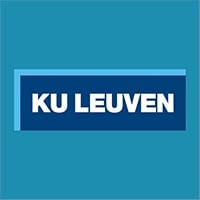PhD in Magnetic Resonance Imaging of Radiotherapy-induced Cognitive Decline
Position Details (PhD Research Project)
This project is hosted by the Biomedical MRI group, Department of Imaging and Pathology at KU Leuven. The Biomedical MRI part of the experimental in vivo imaging facility of the Department of Imaging and Pathology. Our research focuses on the development and validation of multimodal imaging approaches in biomedical research. The facility is equipped with state of the art preclinical imaging instrumentation, including two high-field preclinical MRI scanners (7 and 9.4T) but also optical imaging, CT, ultrasound, PET etc. The Biomedical MRI group is part of the Department of Imaging and Pathology and also partially involved in clinical studies at the University Hospitals. Close collaborations with the medical imaging research center focus on image processing approaches that are tailored to disease models. Collaboration with the Department of Oncology, the Department of Experimental Psychology, the Department of Experimental Radiotherapy as well as within the Department of Imaging and Pathology focus on the development of disease and therapy models and their validation by state-of-the-art methods in biomedical research.
Website unit
Project
Each year, brain tumours affect 300,000 people worldwide; 17% of these cases occur in children. Despite improving 5-year survival rates, the neuropsychological impact of treatments remains poorly understood. Radiotherapy, a cornerstone of cancer treatment, has advanced in optimizing dose distribution and improving tumour localization. However, it still significantly affects healthy brain tissue, particularly in children, since developing brains are susceptible to radiotherapy-induced neurotoxicity. The mechanisms driving cognitive decline need to be addressed in more detail for targeted treatment adaptations. Key challenges to disentangle risk factors for neurocognitive impairment in patients include tumour size, location, treatment specifics, age, sex, and environmental factors. To address these challenges, we have developed a preclinical rat model to monitor structural and functional connectivity as well as neuroinflammation non-invasively over several weeks using state-of-the-art magnetic resonance imaging (MRI) in parallel to behavioural assessment and histology.
The overall goal of the project is to investigate the impact of radiotherapy in brain development using a juvenile rodent model via an interdisciplinary approach incorporating advanced neuroimaging (functional MRI, brain volumetrics), behavioural assessments and histology. The overarching goals are to identify regions in the brain most susceptible to radiotherapy and to assess pharmaceutical interventions in minimizing damage to healthy brain tissue.
This research will be conducted within the Biomedical MRI laboratory, which is part of the Department of Imaging & Pathology at KU Leuven on the Gasthuisberg campus. You will have access to state-of-the-art infrastructure, including animal facilities, small animal MRI (7T and 9.4T) and histology.
Profile
You hold a MSc degree in biomedical sciences, bio(medical) engineering, biophysics or can demonstrate relevant experience.
You can demonstrate thorough knowledge of Microsoft Word, Excel and PowerPoint.
You have experience in, or are willing to learn MATLAB.
You hold the FELASA B certificate, or international equivalent or you are willing to follow a respective training course.
Taking initiative comes natural to you.
You are a team player with excellent communication skills.
You are fluent in English, both orally and written.
You are motivated to work in a multi-disciplinary environment
You are passionate about science, combining aspects of imaging sciences, cancer research and neuroscience
You should have experience in at least one of the following fields
– Experience in image processing and/or
– Familiar with rodent behavioural tests and/or
– Experience in histology and/or
– Familiar with the theory and preferably practical aspect of MRI.
You will be responsible for:
– Animal handling including radiotherapy implementation and MR acquisitions
– Implementation and optimisation of behavioural tests geared towards cognition
– Processing and analysis of histology samples
– Writing of reports and papers, including data analysis and generation of figures
– Training of master students
Offer
The successful candidate will be hired as a PhD candidate. The full time position is initially for 1 year and extendable for a maximum of 4 years after successful evaluation or personal funding application.
You will work with state-of-the-art preclinical imaging instrumentation.
The project is embedded in a multi-disciplinary and international research environment, combining expertise in imaging research, (neuro)immunology/ neuropathology, immunohistochemistry, behavioral testing in rodents, cancer research/ tumor models and radiotherapy.
You will participate in active scientific exchange within the doctoral school, the department and beyond (for example, international conferences).
We pay attention to international mobility, foreseeing research exchanges with our international collaborators.
The university offers many ‘soft skill’ courses, extending your expertise beyond your scientific project.
Interested?
For more information please contact Prof. dr. Uwe Himmelreich, tel.: +32 16 33 09 25, mail: [email protected] or Mrs. Shannon Helsper, tel.: +32 16 33 03 02, mail: [email protected].
KU Leuven strives for an inclusive, respectful and socially safe environment. We embrace diversity among individuals and groups as an asset. Open dialogue and differences in perspective are essential for an ambitious research and educational environment. In our commitment to equal opportunity, we recognize the consequences of historical inequalities. We do not accept any form of discrimination based on, but not limited to, gender identity and expression, sexual orientation, age, ethnic or national background, skin colour, religious and philosophical diversity, neurodivergence, employment disability, health, or socioeconomic status. For questions about accessibility or support offered, we are happy to assist you at this email address.



 KU Leuven
KU Leuven